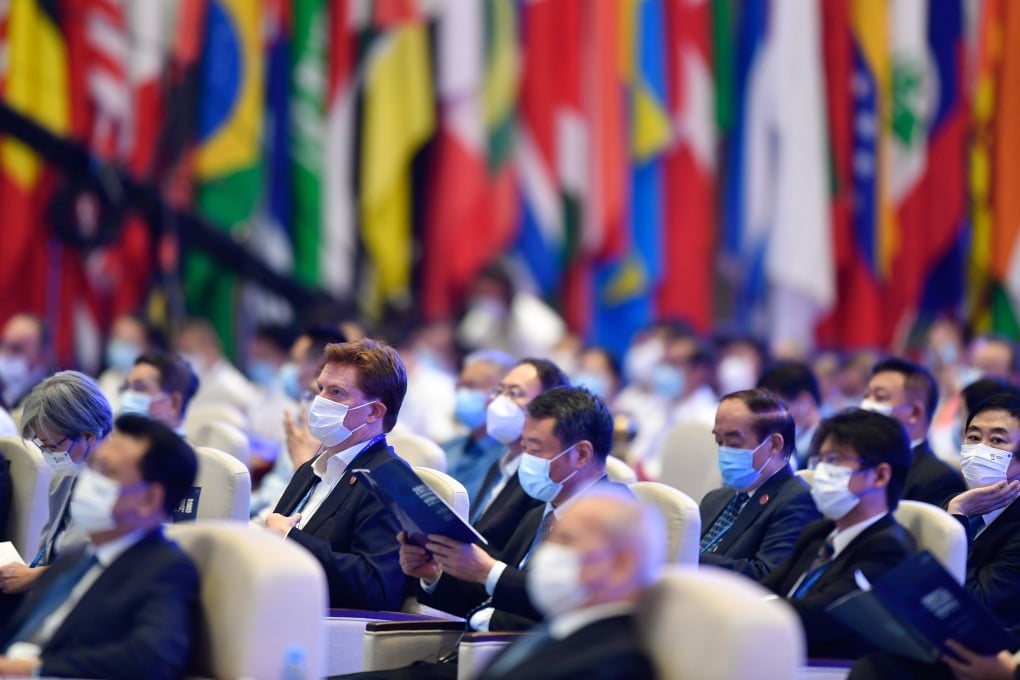Advertisement
Tesla, Intel, Qualcomm CEOs keen to support China’s digital transformation, strengthen ties as Xi pledges cooperation
- Tesla CEO Elon Musk, Intel’s Pat Gelsinger and Qualcomm’s Cristiano Amon address China’s World Internet Conference
- President Xi Jinping promises China will work with all countries to create a vibrant digital economy and improve supervision effectiveness
Reading Time:2 minutes
Why you can trust SCMP

Tesla chief executive Elon Musk on Sunday spoke at the opening of China’s World Internet Conference, an annual showcase taking place against a backdrop of unprecedented economic turbulence.
The summit was opened by President Xi Jinping’s promise that China will work with all countries to create a vibrant digital economy and improve supervision effectiveness, in remarks delivered by Vice-Premier Liu He. Hosted in the artificial water-town of Wuzhen, this is the eighth edition of a series that Xi launched with much fanfare in 2014 to mark the globalisation of China’s internet sphere.
Also taking part in the event via teleconference were Pat Gelsinger, the recently appointed CEO of Intel, and Cristiano Amon, who stepped into the top role at Qualcomm this summer. The inclusion of these US business leaders alongside domestic firms like Alibaba Group Holding and Xiaomi may restore some sense of normalcy in the midst of an 11-month campaign to rein in the power of big tech.
Advertisement
Tesla is pleased to join and support China’s digital economy, Musk said on a video call. The company already hosts all its China user data locally and is looking forward to the economic transformation that will be brought about by self-driving cars, he added.

Advertisement
Qualcomm’s Amon commended the speed of China’s 5G roll-out and the many relationships his company has cultivated with local device makers, urging US and Chinese companies to work together more.
Advertisement
Select Voice
Select Speed
1.00x